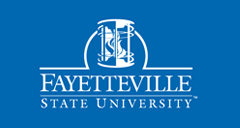Abstract
This study explored faculty members' perspectives on online teaching in higher education and described, analyzed, and interpreted faculty members challenges and experiences of teaching online courses. Participants were twelve (12) faculty members who have taught online courses or currently teach online courses. Data was collected from 60-minutes semi-structured interview sessions, 78 open-ended questions, three research driving questions, background questionnaire, and personal artifacts from faculty members. Five major themes with subthemes, 15 code categories, and code co-occurrences emerged from the data collection, field notes, memos, and data analysis. However, not all of the code categories were replicated by all of the faculty members who teach online. Results suggested that plagiarism was the least mentioned by only ten faculty members. Followed by plagiarism was the category of evaluation, which was the second least, mentioned by the faculty members who participated in this research study. The co-occurrences of categories were reliant on the experiences of faculty members who teach online in higher education. All twelve faculty members shared obstacles that co-occurred with the categories of professional development, distance education, instruction, curriculum, and assessment. Results are discussed in terms of highlighting the important components that institutions should consider to effectively train and support faculty members who teach online courses to advance and improve instructional curriculum.
Recommended Citation
Quayson, Felix O.
(2022)
"Faculty Perspectives on Online Teaching in Higher Education: A Qualitative Approach to Understand Faculty Members’ Challenges and Experiences,"
Journal of Research Initiatives: Vol. 6:
Iss.
2, Article 9.
Available at:
https://digitalcommons.uncfsu.edu/jri/vol6/iss2/9
Included in
Curriculum and Instruction Commons, Disability and Equity in Education Commons, Educational Assessment, Evaluation, and Research Commons, Elementary and Middle and Secondary Education Administration Commons, Gifted Education Commons, Higher Education Commons, Higher Education Administration Commons, Higher Education and Teaching Commons, Junior High, Intermediate, Middle School Education and Teaching Commons, Online and Distance Education Commons, Special Education and Teaching Commons
